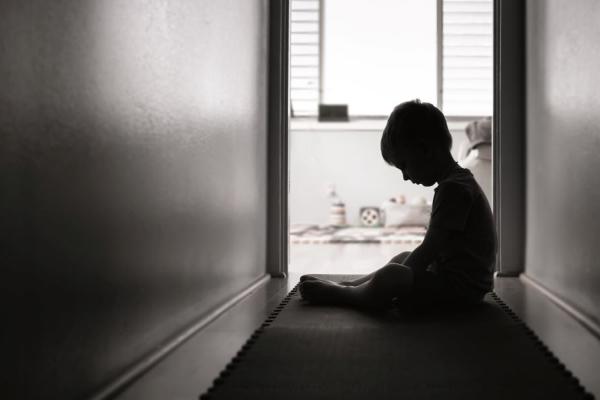Turning the rising wave of child sexual abuse
Child sexual abuse is a real and growing danger. More and more often, abusers use the internet to communicate with each other, share materials, and reach out to children. Predators take photos and videos of the abuse they commit in real life and share them though the internet. They use web cams, mobile phones, social media or other online platforms to coerce or blackmail children into inappropriate and illegal sex acts.
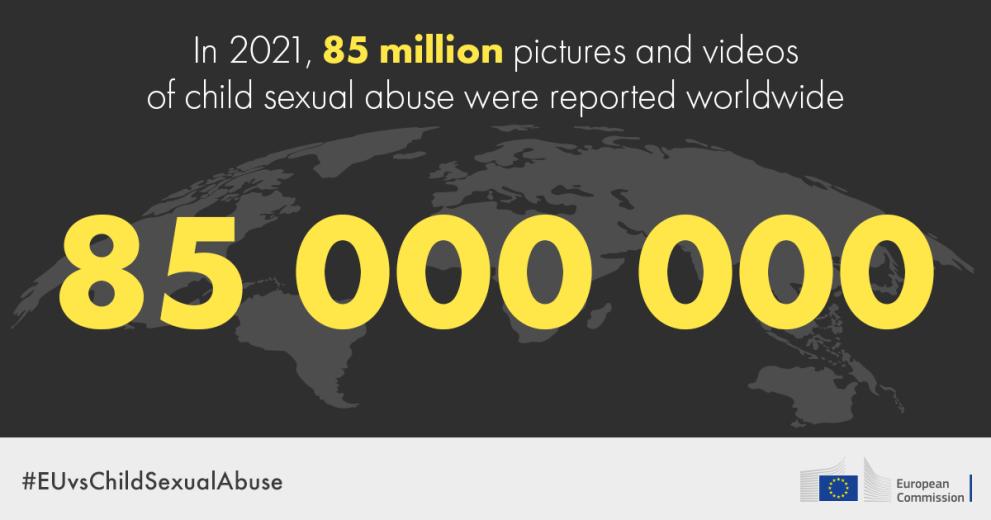
Photos and videos of children being sexually abused are shared online on a massive scale. In 2021, 85 million such pictures and videos were reported by Internet companies.
Knowing that there are such horrid images of me that hundreds of people are looking at and doing who knows what, is unbearable.
Survivor of child sexual abuse, the Netherlands
Abuse and exploitation know no borders. Images of crimes committed in one country are circulated and watched across the globe. Victims rarely come forward. Abuse is often committed by a person in the child’s circle of trust, often in the child’s own home.
It took a long time before there was a therapist that didn't dismiss me as a liar straight away. Don't dismiss everything as untrue just because it is too awful to believe.
Survivor of child sexual abuse, Sweden
In many cases, the abuse comes to light only when the actions of perpetrators are detected online. Online service providers play an essential role in reporting online child sexual abuse. Unfortunately, the current system of voluntary reporting is not effective enough. A total of 95% of all reports currently come from one single service provider (Meta). As a society, we need to make it mandatory for all tech companies in Europe to detect and report child sexual abuse online to the authorities.
To address this global problem, the EU has proposed legislation that will help us to find, report, and prevent cases of online child sexual abuse and to support victims. We are all responsible to keep our children safe from sexual predators.
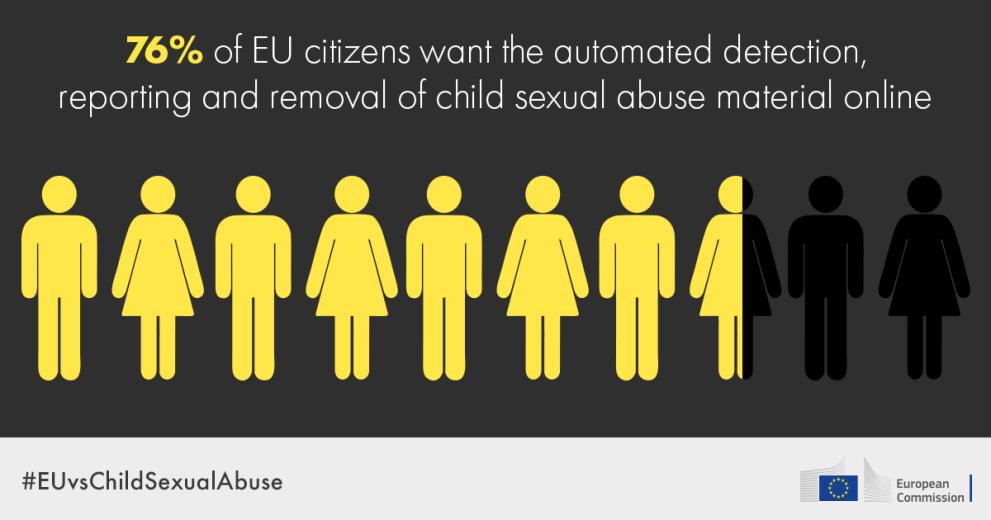
More than 90 child rights organisations have signed an open letter supporting the EU’s proposed law to protect children from sexual abuse. The letter called the law ‘timely and historic, not just for Europe but for the world.’ The law is supported by major European and international organisations that strive for children’s safety and security. These include Missing Children Europe, Eurochild, the German Children’s Fund, ECPAT International, Thorn, and many more.
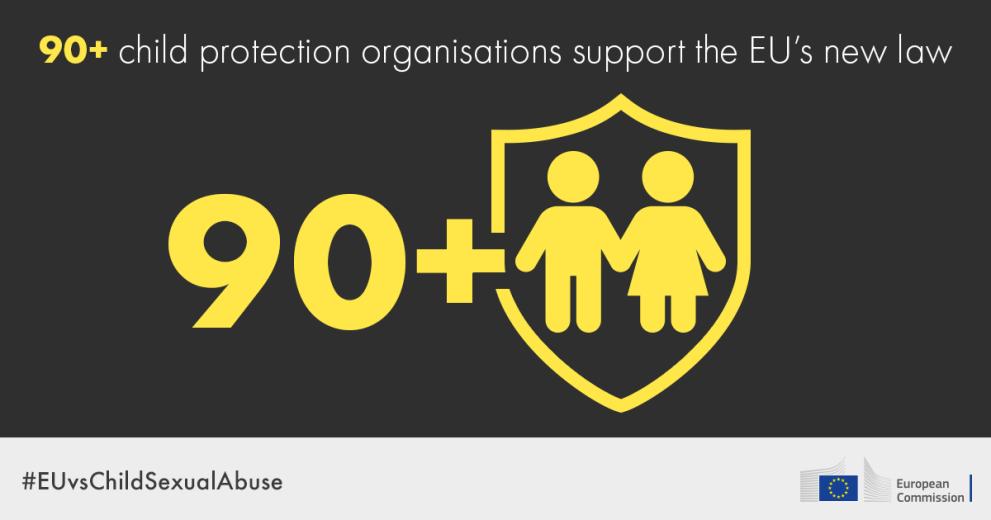
New EU rules against child sexual abuse
The Commission is proposing new EU legislation that aims to help EU countries to:
- detect and report child sexual abuse online
- prevent child sexual abuse
- support victims
This legislation makes it mandatory for service providers to report child sexual abuse online on their platforms and to alert the authorities, so that predators can be brought to justice. Providers will also be required to report cases of grooming – a practice where sexual predators build a relationship, trust and emotional connection with children so they can manipulate, exploit and abuse them.
Learn more about the proposed legislation on the Frequently asked questions
Explore the topics below to learn more about what this legislation aims to do
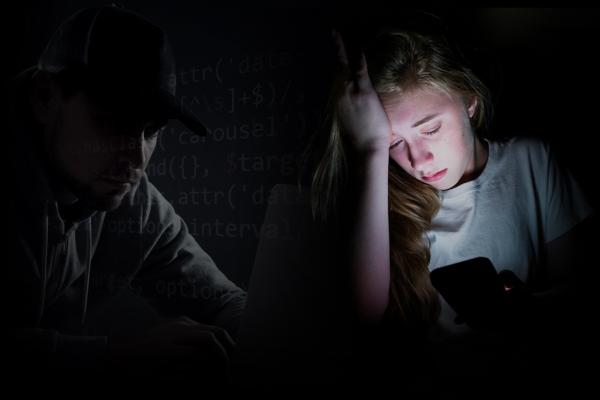
The proposed EU legislation aims to define providers’ responsibilities when it comes to finding and reporting child sexual abuse material and grooming in the digital spaces they operate.

Preventing child sexual abuse is essential to keep children safe. Governments and companies across the EU and beyond need to cooperate efficiently to improve prevention.

Our aim is to protect, support and empower victims.
EU centre to prevent and combat child sexual abuse
To protect children in Europe and worldwide, the Commission proposes to set up a European centre to prevent and fight child sexual abuse and support victims. The centre will:
- coordinate actions to fight against child sexual abuse: from detection and reporting, to prevention and assistance to victims
- provide EU countries with expertise on prevention and victim support
- support law enforcement to act on reports and save children
- provide companies with indicators to find and report online child sexual abuse
- work closely with partners outside the EU, including similar centres in the US, Canada and Australia
The centre will work with companies, research institutes, and law enforcement to help them exchange information and best practices, providing oversight, transparency and accountability.
The Commission prepared a detailed analysis on how coordination between the Center, Europol and Coordinating Authorities will take place.
Related documents
- Proposal for a Regulation on preventing and combatting the sexual abuse and sexual exploitation of children
- Analysis of related legislation
- Regulatory Scrutiny Board: Positive opinion
- Commission services replies to comments from the Regulatory Scrutiny Board, further explaining the proposal
- Follow-up questions to the Commission after the presentation of the proposal
- Comments of the services of the Commission with regards to the time-frame between the expiration of the Interim Regulation and the adoption of the proposed Regulation laying down rules to prevent and combat child sexual abuse
- Comments of the services of the Commission on some elements of the Joint Opinion of the European Data Protection Supervisor and the European Data Protection Board (EDPS-EDPB)
- Comments of the services of the Commission on some elements of the Draft Final Complementary Impact Assessment on the Proposal
- EU Security Union Strategy
- EU strategy for a more effective fight against child sexual abuse
- European Parliament resolution of 26 November 2019 on children’s rights on the occasion of the 30th anniversary of the UN Convention on the Rights of the Child (2019/2876(RSP))
- European Strategy for a Better Internet for Children
Related links
- Public consultation: Fighting child sexual abuse: detection, removal and reporting of illegal content online
- COVID-19 Global online safety advice for parents and carers
- Resources for child sexual abuse survivors and their families
- Resources for those with a sexual interest in children seeking help to address problematic behaviour
- Information about E2EE and advice for parents


